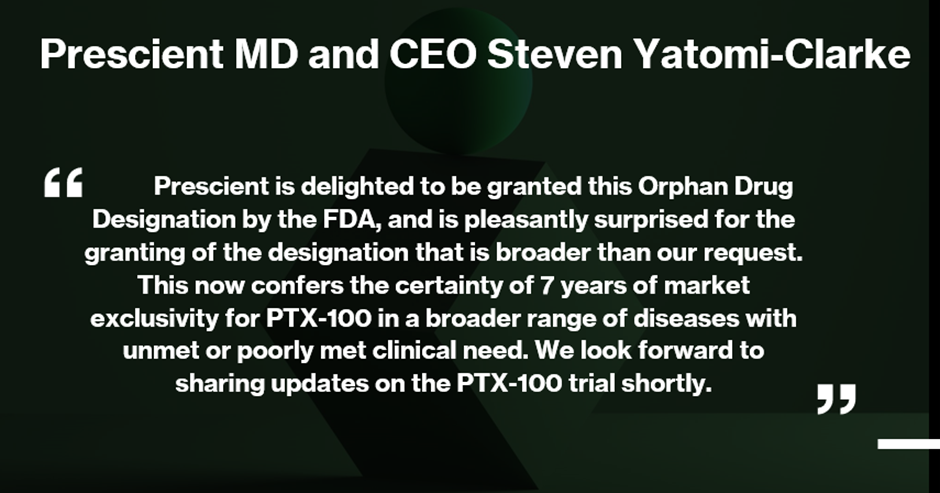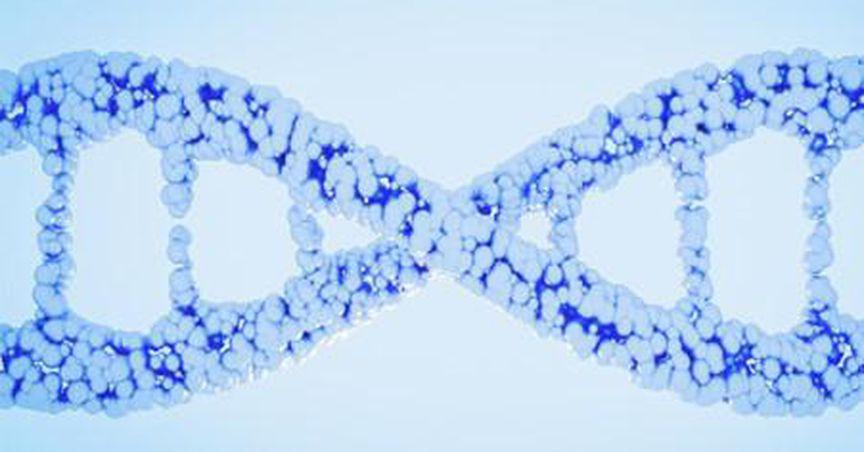Highlights
- Prescient Therapeutics’ PTX-100 therapy previously held Orphan Drug Designation (ODD) for peripheral TCL
- The US Food and Drug Administration has now granted PTX-100 ODD for all T-cell lymphomas including cutaneous TCL
- The company says that the ODD has been granted for a broader indication than requested by PTX
- This gives Prescient developmental benefits including incentives, and market exclusivity for seven years
Australia's clinical-stage oncology company Prescient Therapeutics (ASX: PTX) -- developing targeted therapies (PTX-100 and PTX-200) and cellular therapies (OmniCAR, CellPryme-M, and CellPryme-A) -- has received another boost. The targeted therapy PTX-100 has now been granted the Orphan Drug Designation (ODD) by the US FDA for T-cell lymphomas (all and their subtypes) treatment.
Notably, the therapy was granted ODD for peripheral TCL (PTCL) last year.
Shares soar nearly 29%
The market seems to have welcomed the latest development. The company’s ASX-listed shares were trading at AU$0.125, up over 28.865%, as of writing on 9 March 2023.
The development
The oncology company’s PTX-100 (targeted therapy with ability to block geranylgeranyl transferase-1) has now widened its Orphan Drug Designation. In 2022, the therapy had received ODD for peripheral TCL, after which Prescient applied for cutaneous TCL. The US FDA’s ODD now covers all T cell Lymphomas, which means that the company can benefit from developmental benefits, and market exclusivity (seven years).
The ODD provides incentivising development benefits to drugs that are intended to be used to treat less common diseases. Rare diseases affect <200,000 people in the United States. With this, Prescient has secured a 7-year guaranteed market exclusivity from granting of regulatory approval. Besides, this also brings a waiver of the Prescription Drug User Fee Act fees for orphan drugs that had a value of more than US$3.1 million last year.
Alongside, the company says that FDA’s ODD would enable incentives, which can help in the development activities being undertaken for the PTX-100 therapy.

Source: PTX ASX release dated 9 March 2023
PTX-100
Prescient’s PTX-100 is a “first in class” compound that according to the company can block cancer growth enzyme (geranylgeranyl transferase-1). Notably, the company also asserts that the compound is believed to be the only such inhibitor globally that is under the clinical development stage. It has exhibited safety in an earlier Phase 1 study, with Phase 1b expansion cohort study in T cell lymphomas now ongoing. Efficacy signals and safety have been exhibited by PTX-100 in the latter study as well.



